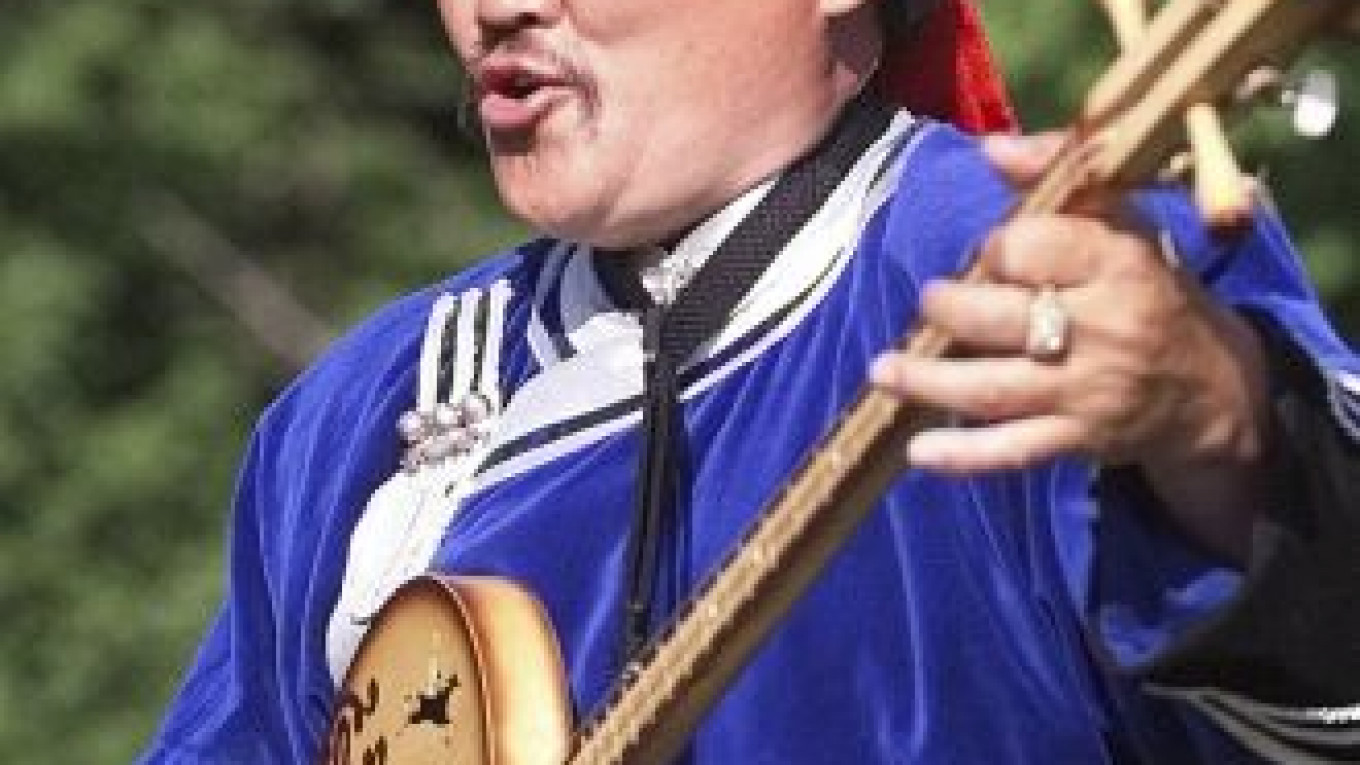Kongar-ol Ondar, a Tuvan throat singer credited with popularizing the centuries-old musical tradition of his homeland to Western audiences, has died after emergency surgery to treat a brain hemorrhage, friends said. He was 51.
Ondar died Thursday at a hospital in Kyzyl, the capital of Tuva, a Russian republic that borders Mongolia, said Sean Quirk, a longtime friend of the singer and manager of the Tuvan throat-singing ensemble Alash.
"He is not replaceable," Quirk said by phone from his home in Tuva. "There's so much of Tuvan culture that's concentrated in him and who he was. He was the ambassador of Tuva."
Throat singing involves simultaneously vocalizing one or more notes over a fundamental pitch, producing a distinct sound that can take years to attain. It is traditionally done by horse herders on the Tuvan and Mongolian steppes, where the music can carry great distances.
Video: Kongar-ol Ondar performing on the "Late Show With David Letterman" on U.S. television in 1999."If it wasn't for him, two-thirds of the band that I work with might be out in the steppes throat singing and herding horses," Quirk said. "Throat singing would still be around without him. But it would not be nearly as widespread or as popular in Tuva or the world."
Ondar first came to the attention of Western audiences in 1993, when he was a last-minute addition to a group of Tuvan throat singers and horse herders invited to participate in that year's Rose Parade in Pasadena, California.
At the time, Tuvan throat singing was unknown in the U.S. to all but a tiny group of devoted fans, said Ralph Leighton, founder of the newsletter-turned-website Friends of Tuva, who made the invitation.
On his initial trip to the U.S., Leighton said, Ondar performed for Frank Zappa, the Kronos Quartet and Ry Cooder, who was moved to include Tuvan throat singing in his score for the 1993 film "Geronimo."
"He was a showman but was true to his Tuvan roots," Leighton said. "He was able to bring Tuvan culture out to a big appreciative audience while also nurturing it at home."
Ondar was featured in the 1999 documentary film "Genghis Blues," which told the story of a blind California blues musician who traveled to Tuva to learn about throat singing.
In addition to his exploits abroad, Ondar both trained and paved the way for the next generation of throat singers in Tuva, Quirk said.
"In the 1990s, he was the only one formally teaching throat singing to young people," Quirk said. "You can see the results of it now. A big chunk of the best singers are his students."






